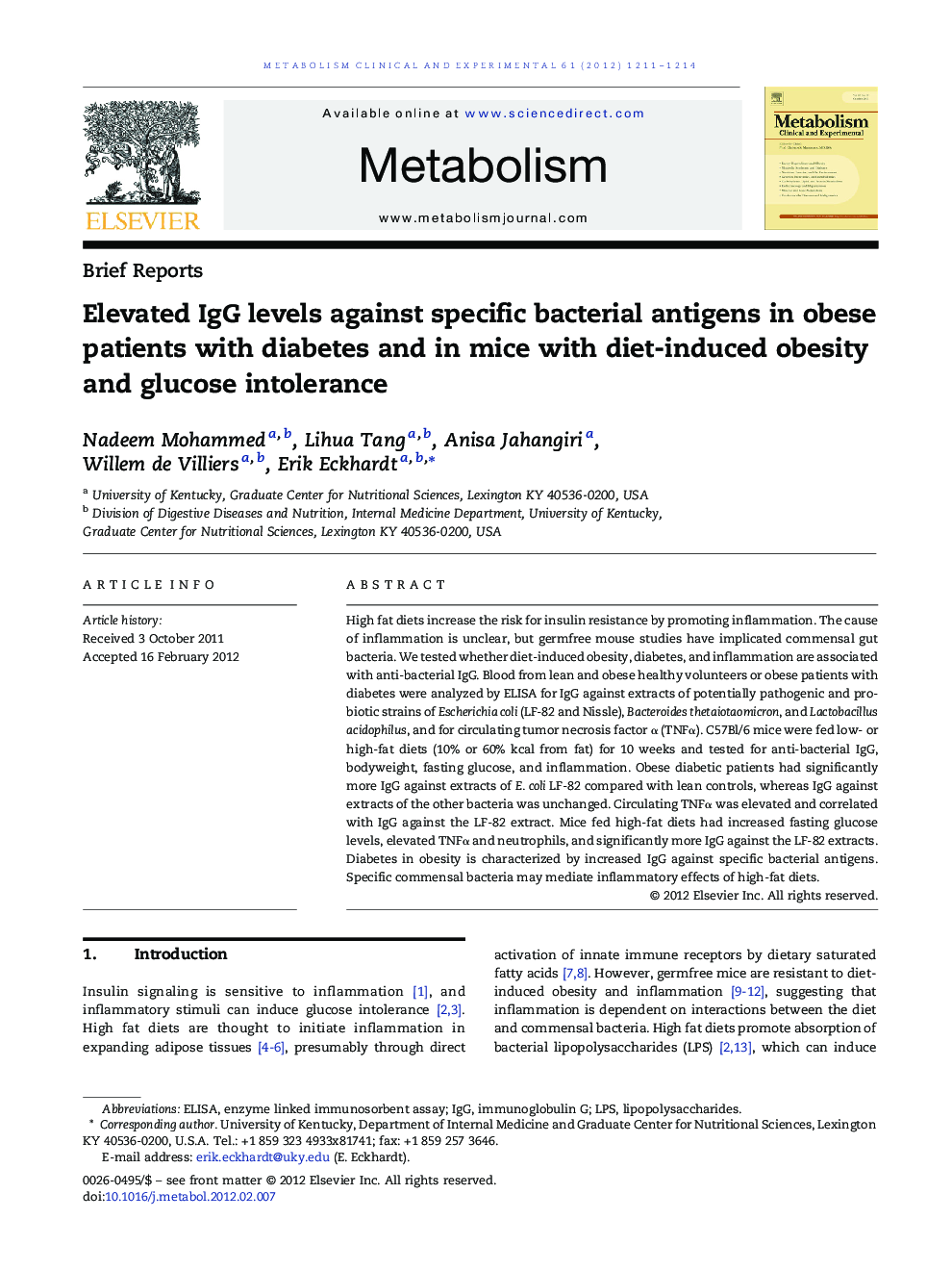| Article ID | Journal | Published Year | Pages | File Type |
|---|---|---|---|---|
| 2806080 | Metabolism | 2012 | 4 Pages |
High fat diets increase the risk for insulin resistance by promoting inflammation. The cause of inflammation is unclear, but germfree mouse studies have implicated commensal gut bacteria. We tested whether diet-induced obesity, diabetes, and inflammation are associated with anti-bacterial IgG. Blood from lean and obese healthy volunteers or obese patients with diabetes were analyzed by ELISA for IgG against extracts of potentially pathogenic and pro-biotic strains of Escherichia coli (LF-82 and Nissle), Bacteroides thetaiotaomicron, and Lactobacillus acidophilus, and for circulating tumor necrosis factor α (TNFα). C57Bl/6 mice were fed low- or high-fat diets (10% or 60% kcal from fat) for 10 weeks and tested for anti-bacterial IgG, bodyweight, fasting glucose, and inflammation. Obese diabetic patients had significantly more IgG against extracts of E. coli LF-82 compared with lean controls, whereas IgG against extracts of the other bacteria was unchanged. Circulating TNFα was elevated and correlated with IgG against the LF-82 extract. Mice fed high-fat diets had increased fasting glucose levels, elevated TNFα and neutrophils, and significantly more IgG against the LF-82 extracts. Diabetes in obesity is characterized by increased IgG against specific bacterial antigens. Specific commensal bacteria may mediate inflammatory effects of high-fat diets.
